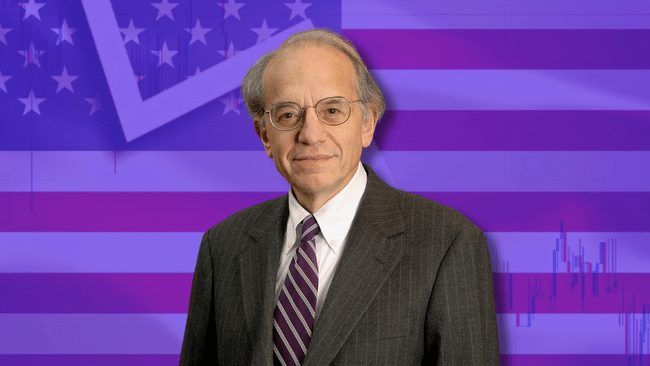The Fed continues to fight relentlessly against high inflation, and lately has made it clear that this is its number one priority under any circumstances. But according to Jeremy Siegel, the Fed is overlooking one important thing.

High interest rates, tighter credit conditions and a downturn in economic activity - these are the main problems US stocks could face in the next six months, warns Wharton professor Jeremy Siegel. The reason is the policy of the US central banking system, which keeps raising interest rates despite the turmoil in the banking industry.
Who is Jeremy Siegel?
Jeremy Siegel is an American economist, professor of finance at the Wharton School at the University of Pennsylvania and author of several books on investing. He was born in 1946 and received his PhD in economics from the Massachusetts Institute of Technology (MIT). Siegel is often referred to as the "guru" of the stock market and is known for his theories on long-term investing.
Siegel is the author of "Stocks for the Long Run," first published in 1994 and one of the most important books on stock market investing. In this book, Siegel argues that stocks are the best long-term investment, outperforming inflation and offering higher returns than other investment vehicles such as bonds or commodities.
Professor Siegel is also a frequent commentator on economic and financial issues in the media. His analysis and opinions on market developments and investments are widely respected and followed by investors and economic analysts alike.
What concerns Siegel?
According to Professor Siegel, the Fed has failed to overlook tighter lending standards and reduced borrowing. The banking system and the decline in lending suggest a decline in economic activity. One example of the impact of tighter credit conditions is the failure of Silicon Valley Bank, which is already being felt by American consumers.
Indeed, what has happened to the banking system, and what I see in the data on lending falling off a cliff, portends a much greater decline in economic activity.
As a result, times may be tough for the economy because of higher borrowing costs, less access to credit, and a possible increase in unemployment. Siegel is pessimistic about U.S. stocks and the economy because the Fed plans to raise interest rates despite the turmoil in the banking industry.
https://www.youtube.com/watch?v=9TDjMlzoFjw
I believe the Fed has already done too much... Their trajectory has been too high.
Professor Siegel believes the Fed is raising rates too high. Any further rate hikes by the Fed could mean pain for US stocks and increase the likelihood of a US recession. In the last 12 months, the Fed has raised base interest rates from near zero to 4.75%.
Traders expect the Fed to deliver another 25 basis point rate hike at its May meeting and begin cutting rates in July. Professor Siegel, however, has a different view. He thinks the Fed should cut rates lower this year than futures are signaling once policymakers see a slowdown in inflation and economic activity.
While it may be rough over the next three to six months, unless you are very tactical and very short-term, I am not a seller.
So the coming six months will be challenging for the U.S. economy, according to Siegel. Investors should be prepared for potential problems and keep a close eye on market developments. Tough times for the U.S. economy and stocks could also mean challenges for global markets, as the U.S. is still the world's largest economy.
Some analysts believe that further interest rate hikes could lead to rising inflation and slowing economic growth. Rising rates could increase the cost of borrowing for businesses and consumers, which could lead to lower consumption and, in turn, a decline in economic activity. This slowdown could negatively affect corporate profits, which could translate into a decline in stock prices.
Conclusion
Professor Siegel's predictions may send an important signal to some investors and economic analysts. It is important to be cautious and monitor further developments. Investors should be prepared for the possibility that U.S. stocks will face difficulties in the coming months and that the economy may slow down.
Otherwise, Jeremy Siegel sees these as short-term problems. In the interview, he admitted that he is still bullish about the long-term performance of stocks. So if Siegel's scenario comes true, we may see more interesting opportunities for investors.
WARNING: I am not a financial advisor, and this material does not serve as a financial or investment recommendation. The content of this material is purely informational.
According to Jeremy Siegel, the Fed is overlooking one crucial point. Which is? And what might it mean for the economy
According to Jeremy Siegel, the Fed is overlooking one crucial point. Which is? And what might it mean for the economy